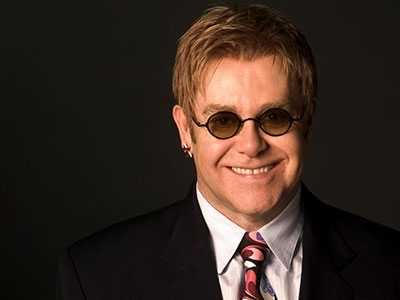A recent article in London’s Evening standard recently caught my eye. According to Selfridges, one of London’s leading retailers, the sale of men’s underwear has increased 28% year on year such that that the department has been given an extra 20% of floor space. They attribute the increase in designer underwear sales largely to David Beckham and his recent ad campaigns.
So it would seem that Celebrity endorsement sells. This may take on a number of forms; appearing in an ad for a product as per David Beckham, a service or support a charity as Elton John does or perhaps attend a PR event. As we have seen with the “David Beckham affect” a celebrity can capture consumer’s attention, link your brand with the positive attributes of their own brand and thus drive a genuine increase in sales. However celebrities can go off script. At the end of last year Oprah Winfrey was out promoting Surface for Microsoft saying she was buying them as presents. Unfortunately her Tweets were being sent from an iPad! Of course a consumer may also remember the celebrity but not the brand. So before a brand embarks on an expensive celebrity relationship there are a number of key questions you should ask yourself.
 1. Do we have a strong brand/product proposition?
1. Do we have a strong brand/product proposition?
It sounds obvious but before you even consider the (usually)large budget for a celebrity then ensure that your brand or product proposition is strong. Julie Deane’s business The Cambridge Satchel Company was founded in 2007. Her traditional leather satchels are frequently seen on the arms of A-list stars. That kind of endorsement, and subsequent PR in magazines, is invaluable. However according to Julie it’s all down to the appeal of the product, “The celebrities contacted us… Sophie Ellis Bextor bought bags back when we were still [making them] in the kitchen.” In this case Julie was lucky that celebrities came to her. However it is normally the other way round and you usually need to persuade a celebrity to endorse your brand. Of course if your brand or proposition is poor then you only serve to have the celebrity make that poor proposition famous.
2. Does celebrity endorsement fit with the overall brand strategy?
As for every element of a brand campaign it is important to understand the core values of your brand, who your target audience is and what your brand means to them. The goals of a campaign need to be carefully understood as well as the budget allocation. It is very easy to over spend on a celebrity campaign and lose sight of the goals particularly if you get to meet them!
3. Is the celebrity I have chosen the right celebrity?
The celebrity’s brand needs to fit and add to your brand’s attributes so it is definitely worth investing in some research to find this out. A celebrity also needs to be genuinely interested in your brand. You cannot put words in their mouth and they always need to sound natural when they talk about your product. I would also advise that you give them the opportunity to in put into any campaign creative so that they fully buy into it and are as natural as possible.
4. How exclusive is the celebrity to my brand?
Often a celebrity may be involved in endorsing a number of brands. Therefore does this dilute your brand message, will your brand message be lost? Any deal should be beneficial not just from a financial stand point. A celebrity will give your brand more attention if they also have something to gain for their brand.A good example is Liz Hurley recently featured in the UK’s popular Sun Newspaper in support of the Breast Cancer Foundation. Of course trust is vital in these relationships.
 5. Is it working?
5. Is it working?
As with any marketing campaign it is important to see if it is working. Is there positive sentiment on line? What are the conversations about? Is there increased awareness and engagement with my brand. Are people linking that celebrity to my brand. Ultimately are there increased sales of my brand? If the answer to any of these questions are no then it is time for a major rethink. Should I end the relationship? If the relationship is no longer beneficial and particularly if the celebrity no longer fits your brand, it is better to end the relationship sooner rather then later even if this means some initial bad publicity. A good example of this is Nike’s dropping of Oscar Pistorius following the accusation of murder.
Clearly celebrity endorsement can have many positive affects on a brand but as Microsoft and Nike found out, it is not always beneficial. By following the 5 points above you will be able to decide if this is the right strategy for your brand.